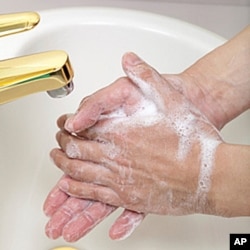The late Howard Hughes was a bold entrepreneur in aviation and the motion-picture industry. But he is remembered almost as much for his pitiful obsession with germs that led him to walk away from a lavish lifestyle and live his final days as a wandering hermit.
Hughes may be an extreme example, but there are millions of others who also suffer from an anxiety condition called obsessive compulsive disorder, or OCD.
One woman in her 20s - we'll call her Jane Green - was also terrified of germs, not out of fear for herself but because she worried she would contaminate others. She engaged in ritual washing of her hands, including each finger and under each nail, dozens of times a day. If she messed up at all, in her words, she'd start over.
Ms. Green started getting up early each morning, just so she'd have enough time to wash up for the day. She was embarrassed to tell anyone because she believed she was the only person with this compulsion.
But Judith Rappaport, a psychiatrist at the National Institute of Mental Health, estimates that as many as one in 50 American adults engages in compulsive behavior such as shutting doors or counting objects again and again, or hoarding odds and ends until rooms are stuffed to the ceiling.
Rappaport says such behavior may be more than psychological. She says that in many patients, it appears to be a physical disorder of the brain. She describes it as a circuit that's going too fast, creating a sort of hiccup of the mind that's repeating over and over again.
Jane Green's treatment included drug therapy and extensive behavior modification. Counselors gradually weaned her from the compulsive handwashing.
Afterward, she pronounced herself 90 percent cured. She told researchers that living close to a normal life is like a fantasy.











